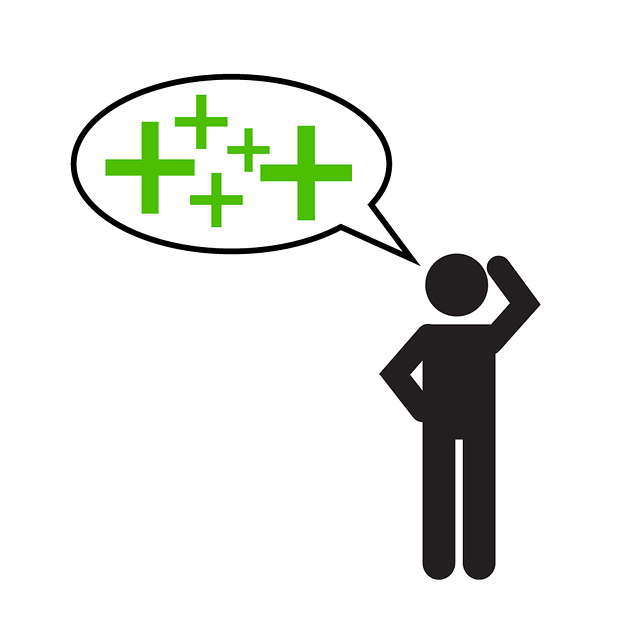CBT therapy is a powerful psychotherapy approach that targets negative thought patterns and behaviors, promoting emotional well-being. Certified CBT psychotherapists guide clients through structured sessions to challenge unhelpful beliefs, adopt positive perspectives, and learn practical coping strategies for managing conditions like depression, anxiety, PTSD, and eating disorders. The evidence-based method fosters self-awareness, personal growth, and improved quality of life. Certified therapists undergo rigorous training, maintain ethical standards, and adapt treatment plans to diverse cultural needs. Integrating CBT with other modalities enhances its effectiveness. Misconceptions about CBT as solely focused on personality change or short-term solutions need correction. Emerging trends in CBT include technology integration, new techniques, and cultural adaptations, ensuring its continued success in modern mental health care.
“CBT certified psychotherapists play a pivotal role in modern mental health treatment, offering evidence-based support through Cognitive Behavioral Therapy. This article delves into the transformative power of CBT, exploring its mechanisms, benefits, and certification process. We examine the distinct role of certified practitioners, ethical considerations, and integration with diverse therapeutic modalities.
From understanding the foundations of CBT to debunking common myths, this comprehensive guide illuminates the impact of CBT therapy. Additionally, we peek into emerging trends, research, and the future prospects of this game-changing approach.”
Understanding CBT Therapy: A Brief Overview

CBT, or Cognitive Behavioral Therapy, is a highly effective form of psychotherapy that focuses on identifying and changing negative thought patterns and behaviors. It’s a structured approach that empowers individuals to take control of their emotions and mental health. By understanding how thoughts, feelings, and actions are interconnected, CBT certified psychotherapists can help clients challenge and replace unhelpful beliefs with more realistic and positive ones.
This therapy is based on the idea that our thoughts influence our emotions and behaviors, and by modifying these thought patterns, we can significantly improve our overall well-being. It’s a collaborative process where therapists support clients in discovering their own insights and solutions while providing practical tools for managing various mental health challenges, including depression, anxiety disorders, phobias, and more.
The Role of CBT Certified Psychotherapists

CBT certified psychotherapists play a pivotal role in modern mental health care, leveraging Cognitive Behavioral Therapy (CBT) techniques to help individuals manage and overcome various psychological challenges. CBT therapy focuses on identifying and modifying negative thought patterns and behaviors, empowering clients to take control of their emotional well-being. These professionals guide patients through structured sessions, teaching them practical coping strategies and skills to navigate life’s stressors more effectively.
By specializing in CBT, psychotherapists offer evidence-based treatments for conditions such as depression, anxiety disorders, post-traumatic stress disorder (PTSD), and eating disorders. Their expertise lies in helping clients challenge cognitive distortions, replace them with healthier alternatives, and adopt behaviors that align with their desired outcomes. Through this process, CBT certified psychotherapists facilitate profound personal growth and improved quality of life for those seeking support.
How CBT Works: Mechanisms and Techniques

Cognitive Behavioral Therapy (CBT) is a highly effective psychotherapeutic approach that focuses on identifying and changing negative thought patterns and behaviors. At its core, CBT works by helping individuals understand the connection between their thoughts, feelings, and actions. The therapy facilitates this understanding through various mechanisms, such as challenging distorted thinking, learning relaxation techniques, and gradually exposing patients to feared situations in a safe environment.
The techniques employed in CBT are designed to empower clients with coping strategies they can use in their daily lives. Through structured sessions, therapists guide patients to recognize unhelpful cognitive distortions, replace them with more realistic and positive thoughts, and engage in behaviors that align with these new perspectives. This process not only enhances emotional well-being but also promotes personal growth and improved quality of life.
Benefits of CBT for Mental Health Treatment

Cognitive Behavioral Therapy (CBT) has emerged as a highly effective approach to mental health treatment, offering individuals a powerful tool for managing and improving their well-being. One of its key strengths lies in its ability to empower patients by teaching them practical skills to identify and change negative thought patterns and behaviors. CBT focuses on the present and future, helping clients challenge unhelpful beliefs and replace them with more realistic and positive ones. This therapeutic method has been extensively researched and proven successful in treating various conditions, including depression, anxiety disorders, post-traumatic stress disorder (PTSD), and eating disorders.
By targeting specific symptoms and goals, CBT provides a structured framework that enables psychotherapists to tailor treatments to individual needs. It encourages active participation from the client, fostering self-awareness and personal growth. The benefits of CBT extend beyond the therapy sessions, as individuals often experience lasting improvements in their mood, thinking patterns, and overall quality of life. Many find themselves better equipped to handle challenges and stress, leading to increased resilience and a more positive outlook.
Certification Process for CBT Psychotherapists

The certification process for CBT (Cognitive Behavioral Therapy) psychotherapists involves a rigorous series of steps designed to ensure practitioners meet high standards of training and competence. Candidates typically begin by completing an advanced degree in psychology, counseling, or a related field. This foundation provides essential knowledge in therapeutic techniques and human behavior. After graduation, aspiring CBT therapists engage in supervised clinical practice, where they gain hands-on experience under the guidance of experienced professionals. This period allows them to apply CBT principles in real-life settings while receiving feedback on their skills.
Upon fulfilling the supervision requirement, candidates must pass a comprehensive exam, such as the National Examination in Clinical Mental Health Counseling or equivalent, to demonstrate their understanding of CBT theory and application. Additionally, many professional organizations offer specialized certifications in CBT, which involve further training, workshops, and examinations. These certifications ensure that therapists stay up-to-date with the latest research and techniques within the CBT therapy realm.
Ethical Considerations in CBT Practice

Ethical considerations are paramount in CBT practice, ensuring therapists maintain the highest standards to support client well-being and foster trust. Central to this is informed consent, where clients understand their treatment and agree to participate willingly. Therapists must also prioritize confidentiality, respecting clients’ privacy while adhering to legal reporting requirements for specific situations, such as suspected child abuse or suicide risk.
Additionally, CBT therapists are guided by principles of non-judgment, empathy, and respect for individual perspectives. They should avoid imposing their beliefs and instead create a safe space for clients to explore their thoughts and emotions freely. This includes being mindful of potential biases and ensuring cultural sensitivity, adapting treatment approaches to meet the unique needs of diverse client populations.
Integrating CBT with Other Therapeutic Approaches

In the realm of psychotherapy, Cognitive Behavioral Therapy (CBT) stands as a versatile and effective approach, often integrated with other therapeutic methods to enhance treatment outcomes. When CBT is combined with other modalities, it creates a powerful synergy that addresses various aspects of an individual’s mental health. For instance, therapists might incorporate elements of mindfulness or acceptance-based techniques alongside CBT to help clients manage anxiety and depression. This integration allows for a more comprehensive understanding of the client’s experiences and promotes self-awareness, enabling them to challenge negative thought patterns while also cultivating present-moment awareness.
The beauty of this approach lies in its adaptability. Different therapeutic models can complement CBT by providing additional tools and perspectives. For instance, Interpersonal Therapy (IPT) can enhance CBT by focusing on relationship dynamics, while Dialectical Behavior Therapy (DBT) adds skills for emotion regulation and distress tolerance. Such integrations reflect the complexity of human psychology and ensure a tailored approach to treatment, making CBT an increasingly popular and effective method in modern psychotherapy.
Common Misconceptions About CBT Debunked

Many people have misconceptions about Cognitive Behavioral Therapy (CBT), a powerful form of talk therapy that helps individuals manage and improve their mental health. One common misunderstanding is that CBT is all about changing one’s personality or making someone “stronger.” However, CBT is not about altering a person’s core identity but rather teaching them to recognize and modify negative thought patterns and behaviors. It empowers clients to take control of their emotions and decisions, fostering resilience and self-reliance.
Another misconception is that CBT is only suitable for treating mild issues or short-term problems. In reality, CBT is highly effective for various mental health conditions, including depression, anxiety disorders, post-traumatic stress disorder (PTSD), and even certain eating disorders. It is a structured and evidence-based approach that can be tailored to meet individual needs, making it a versatile tool in the psychotherapist’s toolkit. By addressing these misconceptions, we can ensure that those seeking CBT therapy understand its true potential and benefits.
Future of CBT: Emerging Trends and Research

The future of CBT (Cognitive Behavioral Therapy) is promising, with emerging trends and research continuing to shape this evidence-based approach. One notable trend is the integration of technology, such as digital therapy platforms and mobile apps, which make CBT more accessible and convenient for patients. These tools can provide structured exercises, track progress, and offer real-time support, enhancing the therapeutic experience. Additionally, researchers are exploring novel techniques like cognitive reappraisal and mindfulness practices to further refine CBT protocols.
Recent studies suggest that CBT remains highly effective in treating a range of mental health conditions, including depression, anxiety, and post-traumatic stress disorder (PTSD). There’s also growing interest in cultural adaptations of CBT to improve its accessibility and relevance for diverse populations. As the field evolves, ongoing research aims to optimize treatment outcomes and ensure CBT therapy continues to be a go-to option for many individuals seeking effective mental health support.
